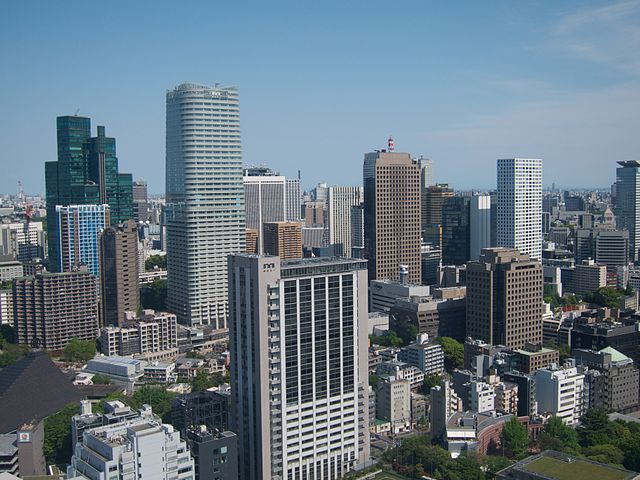Which is the Number 1 Country for Teaching English (EFL)?
As a former EFL teacher in Thailand, I have met hundreds of teachers in my decade of living in Bangkok. Some only teach in Thailand, while others have taught all over the world – Korea, China, Peru, Cambodia, Ecuador, Saudi Arabia, Italy, Spain — you name a country and I probably know someone who has taught there.
Overall, there are more than 150 countries worldwide that western teachers move to so they can teach English as a Foreign Language (EFL) to the people living there. In fact, the EFL teaching industry is enormous, with an estimated 700,000 native English speakers teaching overseas at any one time.
That being said, some countries are better than others when it comes to jobs for EFL teachers, and one country stands out as being the absolute best for many teachers who have taught there.
Which is the number one country for teaching EFL overseas, and would you enjoy teaching there? (And let me just say, it’s not Thailand, which at this point is probably one of the worst countries to teach English in due to low salaries, poor working conditions, inability to get work permits etc).
The number one country for teaching English overseas is……… Japan
Yes, Japan. In fact, it’s miles ahead of most other countries when it comes to salaries EFL teachers are paid, the perks that come with the job, working conditions, living standards and, of course, the friendliness of the people. Japan has been the number one country for English teachers heading overseas for years and, if things don’t change for the better in other countries, it’s likely to remain so.
Salaries for EFL teachers in Japan – While salaries in Japan for English teachers have decreased in the last few years, they are still much higher than in most other Asian countries. Whereas in Thailand for instance, the average salary for an English teacher is 35,000 baht or $1,125 a month, in Japan you can expect to earn between $2,500 and $3.000 a month. Even taking into consideration the higher cost of living in Japan, it’s common for teachers to be able to save at least $500 to $800 a month out of their basic salaries.
Teaching jobs in Korea tend to pay a little more than in Japan. With a huge percentage of native English speaking teachers complaining about their schools, their jobs, their bosses, the scam agencies they unknowingly get involved with, though, it’s not surprising Japan beats out Korea almost every time when it comes to the opinions of the teachers who have taught in both countries.

Job security in Japan – Job security for teachers is not particularly good in many countries. Teachers accept a job over the phone or internet, arrive in country and start working. A month later, they’ve already been laid off or fired and often for nothing more than made-up reasons.
Japan, on the other hand, offers excellent job security for the majority of English teachers who accept jobs there. The application process and interviews can be rigorous but, once you’ve been offered a job, and if you work hard at it, it’s highly unlikely you’ll lose it before the initial contract ends.
Work permits are not job-specific in Japan – In most countries, you must have a work permit to be able to teach English legally. That work permit, however, is job-specific and that means, if you leave or lose the job for whatever reason, your work permit goes with it. In Thailand, you must leave the country as soon as your work permit expires, requiring a trip to a neighboring country just so you can turn around and come right back again.
In Japan, however, the work permit you will receive is not work-specific. That means, if you resign from your teaching job, you will already have a work permit when you start work at a new job – far less hassle for you and much more incentive for another school to hire you quickly.
Living standards for teachers in Japan – Living standards for anyone teaching English in Japan tend to be high. Some schools provide free apartments along with a salary, or will subsidize your rent, and salaries themselves are high. That means you will live comfortably anywhere you teach in Japan and, in most cases, be able to save money as well.
You will also find you can buy just about anything you could ever want in most Japanese cities, so you’re hardly likely to go lacking even if it is just your favorite jar of American peanut butter you’re on the lookout for.
The Japanese are polite, kind and friendly – As a nation, the Japanese tend to be polite, kind and friendly to foreigners so working in Japan can seem like a dream. Like in most places in Asia, teachers are highly respected as well, and you’ll be treated much nicer if you are teaching in Japan than you probably would if you were teaching in a typical American public school.
Compare this to teaching in Korea, where Korean children tend to lack discipline, where parents can be demanding, and where Koreans aren’t as welcoming to foreigners as other countries in the region.
In fact, I’ve lost count of the number of western teachers I know who have left Korea on a ‘midnight run’ (quit their teaching job and headed straight to the airport without even letting their boss know they’re leaving), as they detested the school, the students, their boss and every situation they found themselves in.
If you would like to work in the number one country for teaching English overseas – Japan – get started by looking at the application procedure for The Jet Program, the most popular program for teachers applying to teach in Japan. Or you can check out the Ohayo Sensei website for a huge listing of teaching jobs in Japan.

